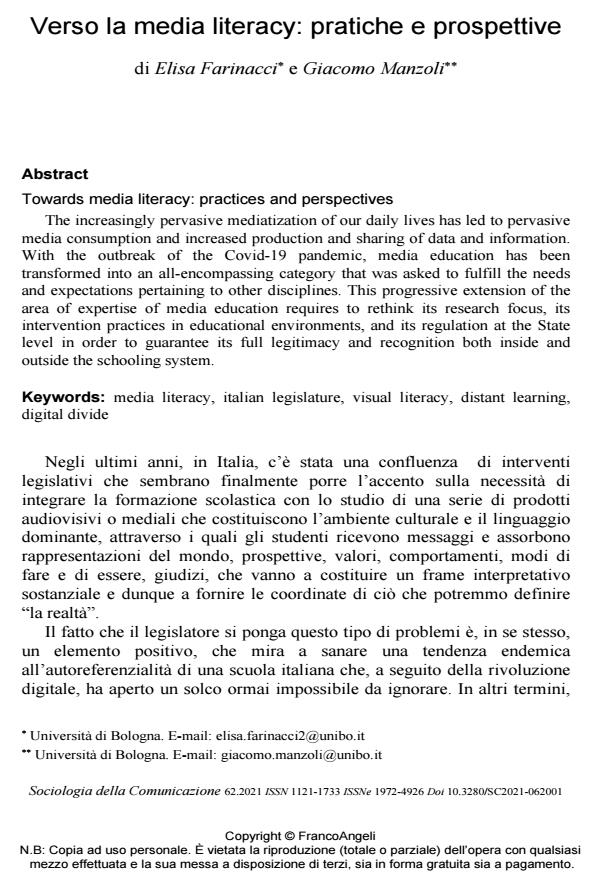Towards media literacy: practices and perspectives
Journal title SOCIOLOGIA DELLA COMUNICAZIONE
Author/s Elisa Farinacci, Giacomo Manzoli
Publishing Year 2021 Issue 2021/62
Language Italian Pages 12 P. 5-16 File size 261 KB
DOI 10.3280/SC2021-062001
DOI is like a bar code for intellectual property: to have more infomation
click here
Below, you can see the article first page
If you want to buy this article in PDF format, you can do it, following the instructions to buy download credits

FrancoAngeli is member of Publishers International Linking Association, Inc (PILA), a not-for-profit association which run the CrossRef service enabling links to and from online scholarly content.
The increasingly pervasive mediatization of our daily lives has led to pervasive media consumption and increased production and sharing of data and information. With the outbreak of the Covid-19 pandemic, media education has been transformed into an all-encompassing category that was asked to fulfill the needs and expectations pertaining to other disciplines. This progressive extension of the area of expertise of media education requires to rethink its research focus, its intervention practices in educational environments, and its regulation at the State level in order to guarantee its full legitimacy and recognition both inside and outside the schooling system.
Keywords: media literacy, italian legislature, visual literacy, distant learning, digital divide
Elisa Farinacci, Giacomo Manzoli, Verso la media literacy: pratiche e prospettive in "SOCIOLOGIA DELLA COMUNICAZIONE " 62/2021, pp 5-16, DOI: 10.3280/SC2021-062001